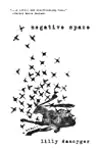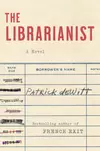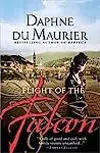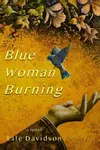
Karen

I read Dubliners in college, so long ago that I barely remembered the experience. Now I've read it again for my book club and I think I probably found it pretty opaque the first time around. So much meaning is not explicitly stated, but needs to be gleaned from context or background knowledge. The people in the stories are living somewhat grim lives, with alcoholism, loneliness, poverty, and other kinds of desperation. In almost every story, someone is trying to get away with something. I didn't feel kindly toward many of the characters, but I appreciate the artistry of the book.
I read Dubliners in college, so long ago that I barely remembered the experience. Now I've read it again for my book club and I think I probably found it pretty opaque the first time around. So much meaning is not explicitly stated, but needs to be gleaned from context or background knowledge. The people in the stories are living somewhat grim lives, with alcoholism, loneliness, poverty, and other kinds of desperation. In almost every story, someone is trying to get away with something. I didn't feel kindly toward many of the characters, but I appreciate the artistry of the book.

A mixture of a memoir of the author growing up grieving her father, an artist and heroin addict, who died when she was an adolescent, and a journalistic investigation of her father through his relationships with friends and family members, and his art. This book is heart wrenching, but also a very beautiful and brave attempt to come to terms with complicated love and grief.
The text is illustrated with black and white photos of the art of Joseph Schactman and family photos of the author with her mother and father.
A mixture of a memoir of the author growing up grieving her father, an artist and heroin addict, who died when she was an adolescent, and a journalistic investigation of her father through his relationships with friends and family members, and his art. This book is heart wrenching, but also a very beautiful and brave attempt to come to terms with complicated love and grief.
The text is illustrated with black and white photos of the art of Joseph Schactman and family photos of the author with her mother and father.

Even though some brutal stuff happens in this novel, I'd still call it gentle. Patrick DeWitt treats his characters, all weirdos in their own ways, with tenderness, even though life doesn't.
Bob Comet, retired librarian, ostensibly someone who reads about life instead of living it, finds a confused old lady at the 7-11 and returns her to the senior center where she resides. His experience at the senior center inspires him to ask the manager if he could volunteer there, and she reluctantly agrees. She tells him that most of the volunteers they've had gave up quickly, because they couldn't cope with the residents.
As you might guess, Bob Comet perseveres at the senior center, with some ups and downs. In the process, we learn about his past: his failed marriage, his failed friendship, his youthful adventure as a runaway, and the significance of the Hotel Elba in his life.
Although I liked this book, it does teeter on the edge of the "loveable, quirky old folks" trope AND it plays dangerously with the "librarian who reads instead of living" stereotype (though I would argue it doesn't really buy into that last one). It also has more than a tinge of melancholy.
Even though some brutal stuff happens in this novel, I'd still call it gentle. Patrick DeWitt treats his characters, all weirdos in their own ways, with tenderness, even though life doesn't.
Bob Comet, retired librarian, ostensibly someone who reads about life instead of living it, finds a confused old lady at the 7-11 and returns her to the senior center where she resides. His experience at the senior center inspires him to ask the manager if he could volunteer there, and she reluctantly agrees. She tells him that most of the volunteers they've had gave up quickly, because they couldn't cope with the residents.
As you might guess, Bob Comet perseveres at the senior center, with some ups and downs. In the process, we learn about his past: his failed marriage, his failed friendship, his youthful adventure as a runaway, and the significance of the Hotel Elba in his life.
Although I liked this book, it does teeter on the edge of the "loveable, quirky old folks" trope AND it plays dangerously with the "librarian who reads instead of living" stereotype (though I would argue it doesn't really buy into that last one). It also has more than a tinge of melancholy.

This is a behemoth of a book at 645 pages. It's very readable history of ACT UP New York, with interviews from surviving members of ACT UP, pages of photos, and appendices for primary source documents. Unlike some histories, this one contains the personal voice and perspective of the author, who was also an active member of ACT UP. Schulman covers ACT UP's meeting format, the affinity groups and other interest groups that formed, planning and execution of actions, and the tensions that formed between the group of ACT UP members who would meet and work with government and pharmaceutical companies and those who carried out the disruptive protests and actions in the streets (and workplaces, and churches, and news organizations...). It was completely fascinating.
This is a behemoth of a book at 645 pages. It's very readable history of ACT UP New York, with interviews from surviving members of ACT UP, pages of photos, and appendices for primary source documents. Unlike some histories, this one contains the personal voice and perspective of the author, who was also an active member of ACT UP. Schulman covers ACT UP's meeting format, the affinity groups and other interest groups that formed, planning and execution of actions, and the tensions that formed between the group of ACT UP members who would meet and work with government and pharmaceutical companies and those who carried out the disruptive protests and actions in the streets (and workplaces, and churches, and news organizations...). It was completely fascinating.

This is a good old fashioned melodramatic thriller set mostly in the fictional town of Ruffano, Italy. Armino Fabbio, a tour guide for a Genoan tour company, has a chance encounter with an old woman who reminds him of the nurse who took care of him as a child in Ruffano. When she is later murdered, he leaves his job and sets off for Ruffano to see if he can verify if it really was Marta, his old nurse. As he comes back to the town he left as an 11 year old boy in the chaos of the end of World War II, he is drawn into the intrigues between factions at the university that threaten to engulf the whole town, and he finds that his family drama is at the center of them.
I was instantly drawn in and read this compulsively in two sittings. The melodrama hit the spot. I especially appreciated the mirroring of the town's (fictional) historic drama between medieval Dukes Claudio and Carlo that is essential to the plot.
This is a good old fashioned melodramatic thriller set mostly in the fictional town of Ruffano, Italy. Armino Fabbio, a tour guide for a Genoan tour company, has a chance encounter with an old woman who reminds him of the nurse who took care of him as a child in Ruffano. When she is later murdered, he leaves his job and sets off for Ruffano to see if he can verify if it really was Marta, his old nurse. As he comes back to the town he left as an 11 year old boy in the chaos of the end of World War II, he is drawn into the intrigues between factions at the university that threaten to engulf the whole town, and he finds that his family drama is at the center of them.
I was instantly drawn in and read this compulsively in two sittings. The melodrama hit the spot. I especially appreciated the mirroring of the town's (fictional) historic drama between medieval Dukes Claudio and Carlo that is essential to the plot.

I appreciate this novel for giving me the opportunity to put "spontaneous combustion" in my tags.
Fallon Kazan and her two brothers, Ovid and Terrence (sometimes known as Cosmo), are adults dealing with the fallout of their mother's apparent spontaneous combustion in the Chilean desert when they were on a family trip as children. Their relationships with each other are turbulent, and Fallon and Ovid have trouble building lives for themselves in the world. Their father, Walter, is a passive man who doesn't know how to help them and may not even think it is his role to help them. This is the state of things in the beginning of the novel. When Ovid has a crisis, things begin to shift in the story. Fallon is led to set off on a journey of discovery in the very car her family was driving in Chile when her mother disappeared in a flash of fire.
In many ways this is a conventional story of adult siblings navigating the aftermath of trauma from their childhood, coming to new understanding of what happened to them, and learning to trust themselves and each other. It was the unexpected elements of the story that made it fun to read. The hints of magical realism in Blue Woman Burning add to the sense that the world of the Kazans is seriously off kilter. Eustacia's over the top personality repeating itself in Ovid, her obsession with him, and his behavior after her exit from their lives suggests not just family drama, but family horror. Fallon's experiences and the people she meets on her epic journey are imaginative and build meaning within the story. I really liked being surprised over and over by what happened next.
I do wish that the character of Walter, their father, had more development. I had so many questions about him. He had enough of a personality to persuade Eustacia not to name her daughter Fallopia and her son Ovum, but almost nothing is said about his reaction to Eustacia's fiery exit. Is his passivity and helplessness in later life because of that or something else? Despite these questions, I really enjoyed the book.
I appreciate this novel for giving me the opportunity to put "spontaneous combustion" in my tags.
Fallon Kazan and her two brothers, Ovid and Terrence (sometimes known as Cosmo), are adults dealing with the fallout of their mother's apparent spontaneous combustion in the Chilean desert when they were on a family trip as children. Their relationships with each other are turbulent, and Fallon and Ovid have trouble building lives for themselves in the world. Their father, Walter, is a passive man who doesn't know how to help them and may not even think it is his role to help them. This is the state of things in the beginning of the novel. When Ovid has a crisis, things begin to shift in the story. Fallon is led to set off on a journey of discovery in the very car her family was driving in Chile when her mother disappeared in a flash of fire.
In many ways this is a conventional story of adult siblings navigating the aftermath of trauma from their childhood, coming to new understanding of what happened to them, and learning to trust themselves and each other. It was the unexpected elements of the story that made it fun to read. The hints of magical realism in Blue Woman Burning add to the sense that the world of the Kazans is seriously off kilter. Eustacia's over the top personality repeating itself in Ovid, her obsession with him, and his behavior after her exit from their lives suggests not just family drama, but family horror. Fallon's experiences and the people she meets on her epic journey are imaginative and build meaning within the story. I really liked being surprised over and over by what happened next.
I do wish that the character of Walter, their father, had more development. I had so many questions about him. He had enough of a personality to persuade Eustacia not to name her daughter Fallopia and her son Ovum, but almost nothing is said about his reaction to Eustacia's fiery exit. Is his passivity and helplessness in later life because of that or something else? Despite these questions, I really enjoyed the book.

Sometimes you're in the mood for a book about a woman marooned on an island in the Gulf of St. Lawrence, battling bears, starvation, and her own demons. If that's you right now, this is your book. Best of all, this novel is based on a true story.
In the novel, Marguerite de la Rocque's parents die when she is a young girl, and her care is left to her unscrupulous kinsman Roberval. Roberval speculates with her inheritance and loses it, so Marguerite's house and lands are rented out and she and her small household are packed off to live in an outbuilding. Roberval's moods are unpredictable and he seems to take pleasure in keeping Marguerite off balance, so we quickly understand that he isn't just unscrupulous with money, he's an all around bad guy. There's no recourse for Marguerite. She's at his mercy and no one is going to hold him accountable for taking her money.
When Marguerite comes of age, Roberval brings her and her nurse Damienne to his house in La Rochelle, and from there on board his ship sailing to New France, where he has been declared viceroy. On the voyage, Marguerite falls in love with his secretary, August, and when Roberval discovers this, he maroons the pair of them (and Damienne) on an island there, with their belongings and some supplies. The story moves from maddening injustice to Robinson Crusoe, as the castaways figure out how to take care of themselves alone on the island, and then to heartbreak as hardships set in.
The theme of religious faith and questioning in this book is handled so well. Marguerite compares her faith to that of her companions and finds herself lacking because she doesn't passively accept her lot, but chafes against her restrictions and tries to make things better for herself. She feels unhappy, complains, and asks for what she wants, while her closest female companions pray much more, and don't complain. Marguerite does experience a dark night of the soul in this book, and while she doesn't come out of it behaving more like those companions, she has more maturity and steadiness than she did before.
A really worthwhile read!
Sometimes you're in the mood for a book about a woman marooned on an island in the Gulf of St. Lawrence, battling bears, starvation, and her own demons. If that's you right now, this is your book. Best of all, this novel is based on a true story.
In the novel, Marguerite de la Rocque's parents die when she is a young girl, and her care is left to her unscrupulous kinsman Roberval. Roberval speculates with her inheritance and loses it, so Marguerite's house and lands are rented out and she and her small household are packed off to live in an outbuilding. Roberval's moods are unpredictable and he seems to take pleasure in keeping Marguerite off balance, so we quickly understand that he isn't just unscrupulous with money, he's an all around bad guy. There's no recourse for Marguerite. She's at his mercy and no one is going to hold him accountable for taking her money.
When Marguerite comes of age, Roberval brings her and her nurse Damienne to his house in La Rochelle, and from there on board his ship sailing to New France, where he has been declared viceroy. On the voyage, Marguerite falls in love with his secretary, August, and when Roberval discovers this, he maroons the pair of them (and Damienne) on an island there, with their belongings and some supplies. The story moves from maddening injustice to Robinson Crusoe, as the castaways figure out how to take care of themselves alone on the island, and then to heartbreak as hardships set in.
The theme of religious faith and questioning in this book is handled so well. Marguerite compares her faith to that of her companions and finds herself lacking because she doesn't passively accept her lot, but chafes against her restrictions and tries to make things better for herself. She feels unhappy, complains, and asks for what she wants, while her closest female companions pray much more, and don't complain. Marguerite does experience a dark night of the soul in this book, and while she doesn't come out of it behaving more like those companions, she has more maturity and steadiness than she did before.
A really worthwhile read!












